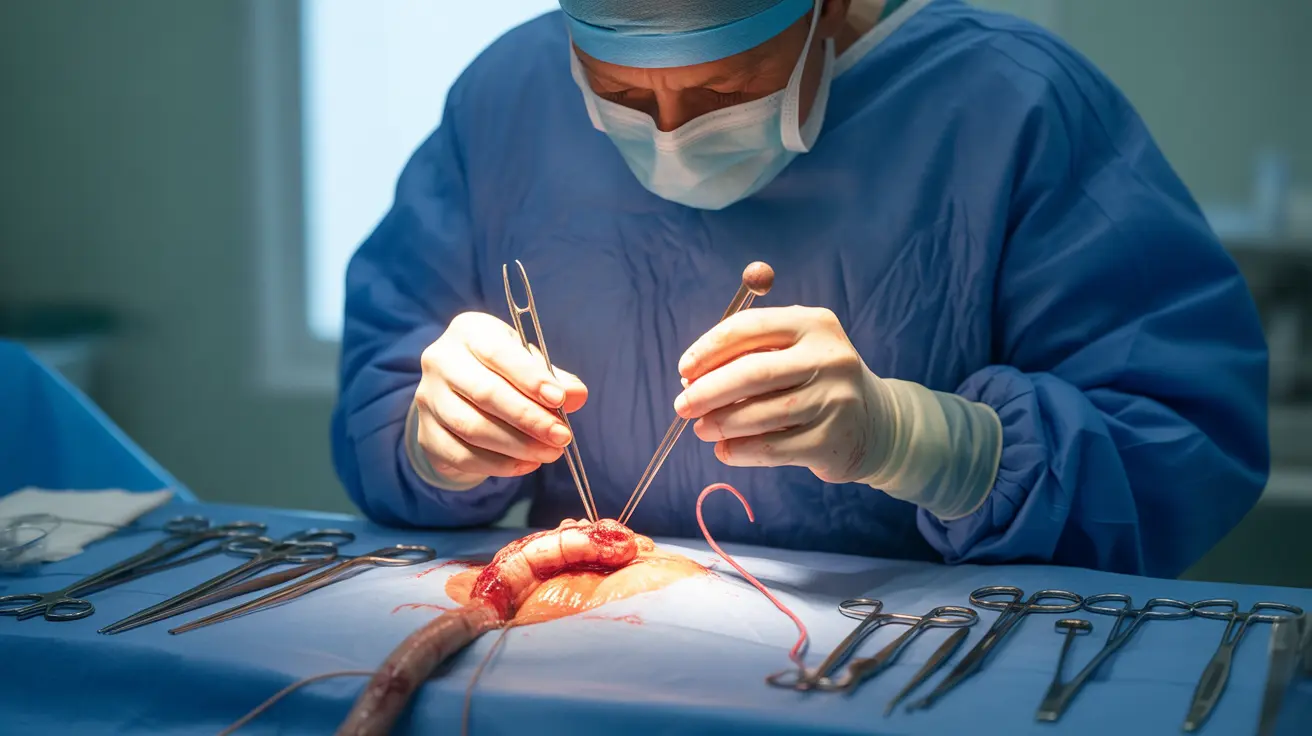Large bowel resection is a major surgical procedure that involves removing damaged or diseased portions of the large intestine (colon). This critical operation helps treat various serious conditions affecting the digestive system and can significantly improve a patient's quality of life when other treatments have proven ineffective.
If you or a loved one is facing this surgery, understanding what it entails, why it's performed, and what to expect during recovery can help ease anxiety and prepare you for the procedure and healing process.
What Is Large Bowel Resection?
Large bowel resection, also known as colectomy, is a surgical procedure where surgeons remove all or part of the colon. After removing the affected portion, the healthy ends of the intestine are reconnected to restore normal digestive function. The extent of the surgery depends on the underlying condition and its severity.
Medical Conditions Requiring Large Bowel Resection
Several serious conditions may necessitate this surgical intervention:
- Colorectal cancer
- Severe inflammatory bowel disease (Crohn's disease or ulcerative colitis)
- Diverticulitis with complications
- Large bowel obstruction
- Severe bleeding from the colon
- Trauma to the large intestine
- Volvulus (twisted colon)
Surgical Approaches
Laparoscopic Surgery
This minimally invasive approach involves making several small incisions in the abdomen. The surgeon uses specialized instruments and a camera to perform the procedure. Benefits include:
- Smaller incisions
- Less post-operative pain
- Shorter hospital stay
- Faster recovery
- Lower risk of infection
Open Surgery
Traditional open surgery requires a larger incision in the abdomen. This approach may be necessary when:
- The affected area is too large
- There are extensive adhesions from previous surgeries
- Complications arise during laparoscopic surgery
- Emergency situations require immediate access
Preparing for Surgery
Proper preparation is crucial for successful outcomes. Your healthcare team will provide specific instructions, which typically include:
- Completing necessary medical tests
- Adjusting current medications
- Following a special diet
- Bowel preparation procedures
- Fasting before surgery
Recovery Process
Recovery from large bowel resection varies depending on the surgical approach and individual factors. Generally, patients can expect:
- Hospital stay of 3-7 days for laparoscopic surgery
- Hospital stay of 5-10 days for open surgery
- Gradual return to normal activities over 4-8 weeks
- Dietary modifications during healing
- Regular follow-up appointments
Frequently Asked Questions
What conditions require a large bowel resection surgery?
Large bowel resection is necessary for conditions including colorectal cancer, severe inflammatory bowel disease, complicated diverticulitis, bowel obstruction, severe bleeding, and trauma to the colon. The specific condition determines the extent of surgery required.
What are the differences between laparoscopic and open large bowel resection?
Laparoscopic surgery uses small incisions and specialized instruments, resulting in faster recovery and less pain. Open surgery requires a larger incision and may be necessary for complex cases, extensive disease, or emergency situations.
What complications can occur after a large bowel resection?
Possible complications include infection, bleeding, anastomotic leak (where the reconnected bowel separates), bowel obstruction, blood clots, and temporary bowel function changes. Your surgical team monitors closely for these potential issues.
How long does it typically take to recover from a large bowel resection?
Recovery typically takes 4-8 weeks, depending on the surgical approach and individual factors. Laparoscopic surgery usually allows for faster recovery, while open surgery may require longer healing time. Complete recovery and return to normal activities occurs gradually.
Will I need a colostomy after a large bowel resection, and is it permanent or temporary?
The need for a colostomy depends on your specific condition and the surgery performed. Some patients may need a temporary colostomy to allow the bowel to heal, while others might require a permanent one. Many patients don't need a colostomy at all. Your surgeon will discuss this possibility before surgery.




